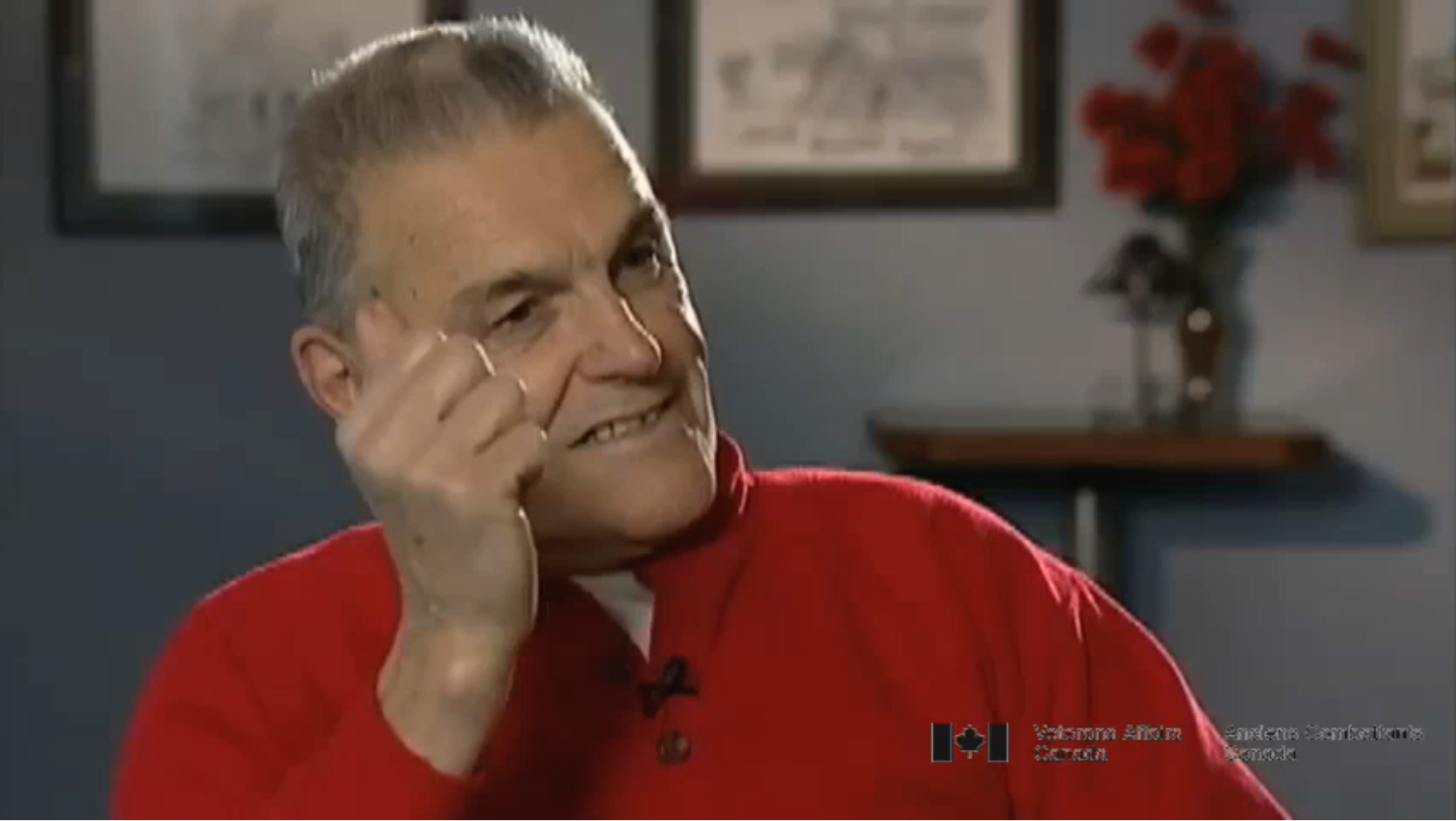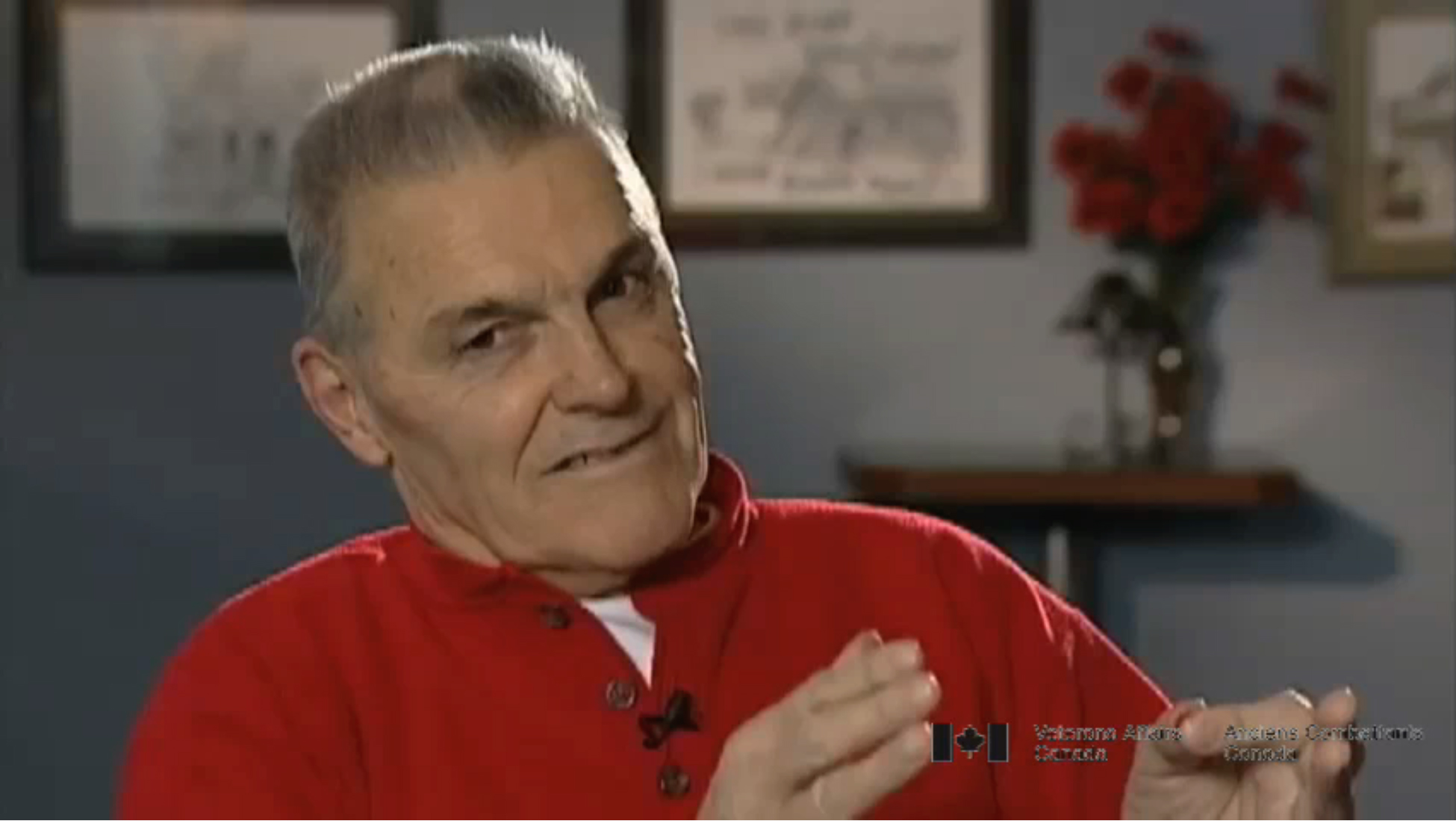Normally It’s An Officer
Heroes Remember
Normally It’s An Officer
Transcript
Then we moved out, and went into Cyprus, which I had no problem
with, I enjoyed. But I was a sergeant in charge of the whole
patrols for the UN forces for the island. Normally, it's an
officer. And I had the patrols for all UN in Cyprus, that I
organized where they would go, what they would do for patrolling,
set up the schedules. And I, I laugh at that one because Lou
Mackenzie, I had taught patrolling, and he went with the 1st
Battalion, and he was recce platoon, which I had, I was with
recce platoon and he did... in charge of all patrolling.
And then I move in again as a (inaudible) sergeant and I run it.
Got in shit on one occasion that I was in Nicosia meeting
with the other forces and commanders, setting up the patrols for
another schedule. I had my two jeeps with me. One of the
operators come in and said there's been a shooting with our
patrols. I said, "Excuse me." I highballed her back to where we
were and got four jeeps loaded with ammunition, everything
we needed, and I took off to Kambyli, where the shooting was.
Roadblocks were up all over the place. I crashed through them,
just drove right through them. Ended up with a Turk putting his
rifle in my chest, and said if I went further, he'd shoot me.
And a young corporal driver in my vehicle cocked his machine gun,
and the guy backed off. We got into Kambyli, where the shooting
was. I re-supplied them with everything they needed, left one
detachment to help them. Went back out, come back with more
supplies, more of the recce platoon. I did that three times.
The UN commander was at the first barrier negotiating to go
through, and I just crashed through each time. I received a nice
little fine, and colonel said in war times, you would have got a
medal. Force, the show of force, and not back down, they
appreciated, and I pushed that to my advantage. I listened to
them, but if I wanted to go somewhere, I went. And when you have
a little private or a corporal who will cock his weapon with a
machine gun behind you, they knew you weren't playing around.
And there was things you weren't supposed to do, but things I
knew you could do to get what you had to find out. The two NCOs,
corporals that told me, that told us all, "If you ever get
promoted, take care of your men." And I found that out, quite
well. And I can go back to one of my brothers, a fella come to
our house that was with him when he got killed, and said that he
was crazy, that he got wounded in Italy helping people, that he
shouldn't have gone. He said this case here, there's snipers
taking shots at a guy that was trapped in a Bren gun carrier, and
he said he went out to get him. We knew there was no chance, and
he got zapped. But he was a lance corporal and it was his man.
Description
Mr. Connelly describes his first tour in Cyprus, loyalty and a deadly incident.
Duke Connelly
Dennis Connelly assumed his name ‘Duke' shortly after enlisting in the infantry. His older brother, whose nickname was Duke, had been killed overseas in the Second World War. One of his former officers mistook Dennis for his brother, and the name stuck. Mr. Connelly did one combat mission late in the Korean War, and later went to Cyprus on a United Nations peacekeeping mission, where he was in charge of all surveillance and reconnaissance tactics. He also did infantry and paratroop training for the Canadian Armed Forces. He left the army to become a park warden in Whitehorse, Yukon Territory.
Meta Data
- Medium:
- Video
- Owner:
- Veterans Affairs Canada
- Duration:
- 04:41
- Person Interviewed:
- Duke Connelly
- War, Conflict or Mission:
- Canadian Armed Forces
- Location/Theatre:
- Cyprus
- Branch:
- Army
- Units/Ship:
- Princess Patricia's Canadian Light Infantry (PPCLI)
- Rank:
- Master Warrant Officer
- Occupation:
- Infantry
Related Videos
- Date modified:





